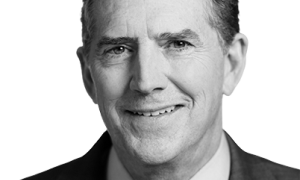Liberal… conservative… libertarian. Republican… Democrat… Independent.
Labels can be confusing—especially the way some politicians label themselves. Who hasn’t been surprised by a candidate who calls himself one thing, then does something completely opposite from what we thought that label meant?
The Heritage Foundation is often called—by those on the left and those on the right—the “Mother Church” of the conservative movement. It’s a label we are proud to carry. And as a “deacon” of that church, I’d like to provide a simple definition of conservatism and explain why I think it’s a good label for everyone.
In the political world, I think of conservatism as the preservation and promotion of the principles, values and policies that have proven to make life better for all.
Put another way, conservatism is the art and science of knowing what to keep. This is also one of the secrets to a successful life. As Kenny Rogers put it in The Gambler, “You’ve got to know when to hold ‘em, know when to fold ‘em.”
Making the right call on weighty matters is seldom easy. Playing hunches or “going with your gut”—in policy-making as well as in poker—is a mug’s game.
Figuring out what to keep requires knowledge of what was valuable in the past and a clear vision of what will be needed in the future. This is why we dedicate so much time and effort to research at The Heritage Foundation.
We want to KNOW what works, what policy ideas make life better for people, what principles and values should be preserved, and how to apply these tested principles and values to public policies that will create a better future for everyone.
Discerning which principles, values and ideas should be kept and which should be discarded is hard. Young people often are less conservative than their elders; their inexperience makes it difficult for them to see how old ideas are relevant to their lives.
People who consider themselves liberal or progressive tend to believe that historic traditions, societal mores, religious morality, or concepts like limited government restrict their freedom and hold people back. But as the old saying goes, “never tear down a fence until you know why it was put up.”
Customs and traditions develop over time because they often protect people and make their lives better. Yes, mixed in with these old ways of thinking are superstitions, old wives tales, and prejudices that should be discarded, but a wise person takes the time to determine what things are worth keeping.
Real progress is made by building on and improving the things that have proved to work in the past. Everything we use in our lives – clothes, cell phones, computers, cars, medicine, contact lenses… you name it – have all been created by a process that continuously builds on and improves the best elements conserved from previous versions of these products.
Over the next few weeks I will share my thoughts about what ideas, principles and values we should hold on to—simply because they’ve proved to be the best bet for strengthening our society, our economy, and our national (and global) security.




